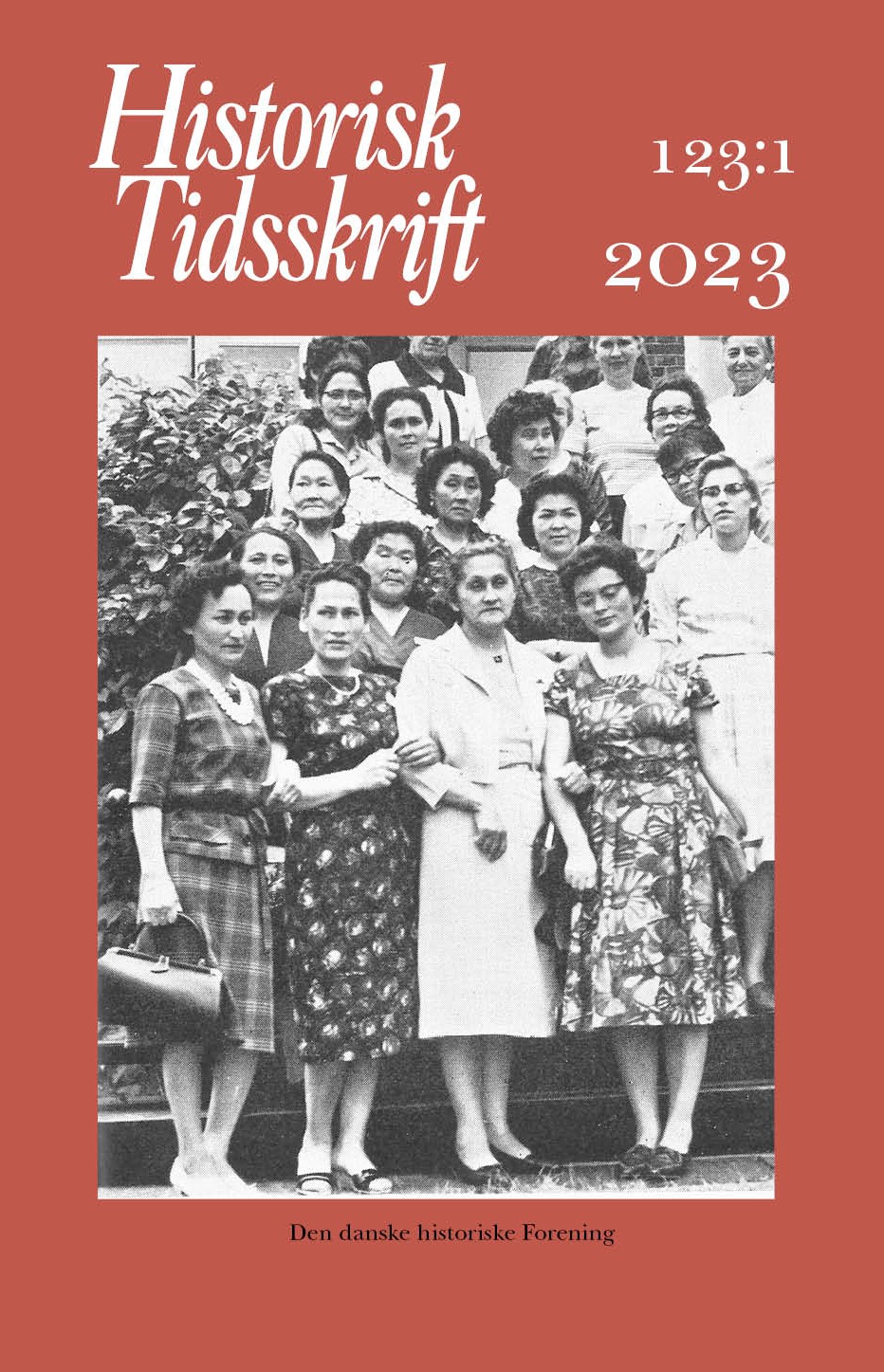Borgerlig udlændingepolitik under Schlüter (1982-1993)
DOI:
https://doi.org/10.7146/ht.v123i1.138932Resumé
The Immigration Policy of the Danish Liberal-Conservative Government, 1982-1993
The purpose of this study is to map the immigration policy of the Danish Liberal-Conservative government under the leadership of Poul Schlüter 1982-1993. Research, first and last Niels Wium Olesen’s magisterial De danske ministerier 1972-1993. Del 2. Poul Schlüters tid 1982-1993 (2019), has focussed on the government’s efforts to correct macroeconomic imbalances, with little attention paid to other areas of policy. However, the foundations for later debate and policies concerning immigration and integration were laid in this period. Guest workers and refugees arrived in increasing numbers in Denmark from the 1960s onwards. The ensuing politicisation of how to deal with the influx first resulted in the rather liberal 1983 immigration law. It was tightened twice in 1985-1986 with support from the Social-Democratic party. Government focus was on effective administration and border control in order to manage large arrivals of refugees. Integration policy was not a priority for the government who outsourced its implementation to municipalities and a few NGOs. The participation of the ‘Radical’ (Social Liberal) party in the government 1988-90 as well as a major political-administrative scandal (Tamilsagen) that ended with the downfall of Minister for Justice Erik Ninn-Hansen, further delayed the development of a coherent Liberal-Conservative policy on immigration and integration. Following the departure of the Radical party in 19900 the remaining Liberal-Conservative government was under increasing pressure from the opposition to launch a coherent immigration policy, which it eventually did in 1992. This led to a compromise with the Social-Democratic party the following year. Control with the admission of refugees to Denmark was more strictly enforced and a new policy of integration introduced. Altogether, the Liberal-Conservative government was under constant parliamentary pressure to draw up an overall immigration policy but failed to do so until six months before it resigned in 1992. Consequently, the political agenda in this field was conquered by the Social-Democrats and parties on the far left and right. Finally, though, in the parliamentary year of 1991-1992, under the auspices of Minister for Justice Hans Engell, the political debate on immigration was given higher priority. With the benefit of hindsight, this delay was both a political blunder and a missed opportunity on the part of the Liberals and the Conservatives.
Downloads
Publiceret
Citation/Eksport
Nummer
Sektion
Licens
Ophavsret til bidrag i Historisk Tidsskrift tilhører forfatterne og Den danske historiske Forening som udgiver af Historisk Tidsskrift. For illustrationer gælder den ophavsret, som står anført i billedteksten. Ophavsretslovens almindelige bestemmelser gælder, hvilket vil sige, at ophavsretten gælder i 70 år efter forfatterens død. Bidrag i Historisk Tidsskrift må derfor, med forbehold for en ”moving wall” på tre år, frit downloades, læses, gemmes, anvendes og citeres (med kildeangivelse) i privat og videnskabelig sammenhæng, men de må ikke helt eller delvis genudgives af tredjepart, heller ikke i redigeret form, uden tilladelse fra forfatterne og Den danske historiske Forening. Henvendelse skal i så fald rettes til Historisk Tidsskrifts redaktion på histtid@hum.ku.dk.





